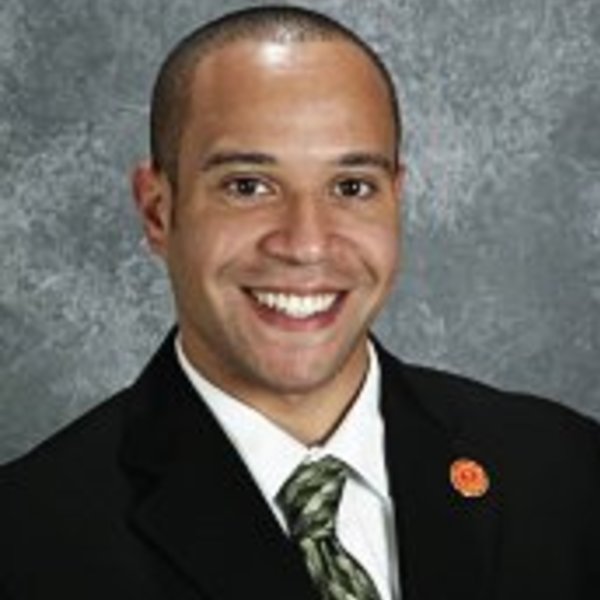“. . . a time to be silent, and a time to speak . . . ” (Eccl 3:7)
We live in a world that is too frequently noisy, replete with a cacophony of distracting sounds and sights. It is no wonder that we make recourse to the word “loud” to describe an obtrusively bright, flashy color or design, or even the many prominent figures within our culture who surround themselves by a whirlwind of activity and clamor for our attention. Yet, this loudness is not how God operates, and it is not how God calls us to operate. Instead of boastfulness, immodesty, abrasiveness, or any combination thereof, we are actually called to holy meekness and humility.
Some of the most profound passages of Scripture indicate a God who is subdued, but not in an indecisive or unsure way; rather, in a manner that allows him to enter into the refuge of our hearts. Let us first look at the Old Testament. In Psalm 46:11, God commands us to “Be still and know that I am God!” During Elijah’s journey to Mount Horeb, when God told him that he was going to pass by, he did not reveal himself in a violent tempest, a ground-shaking tremor, or a fiery inferno, but in “a light, silent sound” (1 Kgs 19:12; cf. 1 Kgs 19:1–21).
We find the same divine characteristic in words and actions of Jesus recorded in the New Testament. In the Gospel of Matthew, Jesus reminds us of how he alone brings ultimate contentment to our hearts: “Come to me, all you who labor and are burdened, and I will give you rest. Take my yoke upon you and learn from me, for I am meek and humble of heart; and you will find rest for yourselves. For my yoke is easy, and my burden light” (Mt 11:28–30, emphasis added). Nonetheless, Jesus’ meekness can never be taken as shyness, timidity, or a lack of resoluteness, because the Gospel is rife with instances in which he did not hold back from what had to be said regarding truth in light of the Good News. After all, we need but recall what will be proclaimed in the narrative of his triumphal entry into Jerusalem this Palm Sunday: the Pharisees sought to suppress the disciples’ proclamation by telling Jesus to “rebuke [his] disciples” (Lk 19:39), and Jesus retorts, “I tell you, if they keep silent, the stones will cry out!” (Lk 19:40). And yet, after Jesus is arrested in the garden of Gethsemane, we read that he is silent before the Sanhedrin (cf. Mt 26:63). Jesus’ silence here fulfills the prophetic words of Isaiah: “Though harshly treated, he submitted and did not open his mouth; like a lamb led to slaughter or a sheep silent before shearers, he did not open his mouth” (Is 53: 7).
When we look for other models of meek sanctity, we cannot help but look at the example of Jesus’ foster-father himself, St. Joseph. Joseph is well known for his “silence”: there are no words from him recorded in the Gospels. Joseph is mentioned on various occasions within the Gospels of Matthew, Luke, and John. It is especially within the infancy narratives of Matthew 1–2 and Luke 1–2 that we acquire our image of Joseph as the husband of Mary, foster-father of the Christ child, and protector of the Holy Family. Joseph is divinely inspired to stand by Jesus and Mary, humbly devoting himself to caring for them and providing for them.
As we anticipate the celebration of St. Joseph’s feast day tomorrow, we recall the example of another “silent” saint: St. André Bessette, the first saint from the Congregation of Holy Cross, who had a deep devotion to St. Joseph. Not only had Blessed Basil Moreau, founder of the Congregation of Holy Cross, already chosen the Holy Family of Jesus, Mary, and Joseph as the protective patrons of the Congregation of Holy Cross, but St. André also took this dedication a step further by promoting St. Joseph’s heroic virtue, ultimately overseeing the building of l'Oratoire Saint-Joseph du Mont-Royal (Saint Joseph’s Oratory in Montréal) in Québec, Canada. Although St. André lived to be a robust ninety-two years old, his time on earth did not feature many recorded words, whether spoken or written, the latter especially due to the factor of his illiteracy. Regardless, throughout his life, St. André embraced St. Joseph’s example of meek humility.
As we celebrate St. Joseph this weekend, we must recall that silence does not mean lack of adherence to principles or acquiescence to the temporal concerns of this world. St. Joseph, St. André Bessette, and many other holy men and women were not necessarily accomplished writers or orators (at least knowingly), but their lives themselves spoke volumes. We can especially reflect on those saints who were martyred, in keeping with Jesus’ sobering exhortation: “Everyone who acknowledges me before others, I will acknowledge before my heavenly Father. But whoever denies me before others, I will deny before my heavenly Father” (Mt 10:32–33). Most followers of Jesus Christ will probably not meet our end by way of martyrdom, but we must ensure that our lives speak for our faith in Jesus Christ, even when our words fail us. After all, in reflecting on the quiet strength of figures such as St. Joseph and St. André Besette, we find that there are no “silent” saints when our love for the Lord speaks aloud, shining through our interactions with others and hopefully drawing them closer to Christ in the process: “I give you a new commandment: love one another. As I have loved you, so you also should love one another. This is how all will know that you are my disciples, if you have loved for one another” (Jn 13:34–35). As we enter into Holy Week and as we celebrate Easter, let us always remember to let our love for God and humanity reverberate in our Christian actions, even when they are undertaken silently and meekly. St. Joseph, pray for us. St. André Bessette, pray for us.

